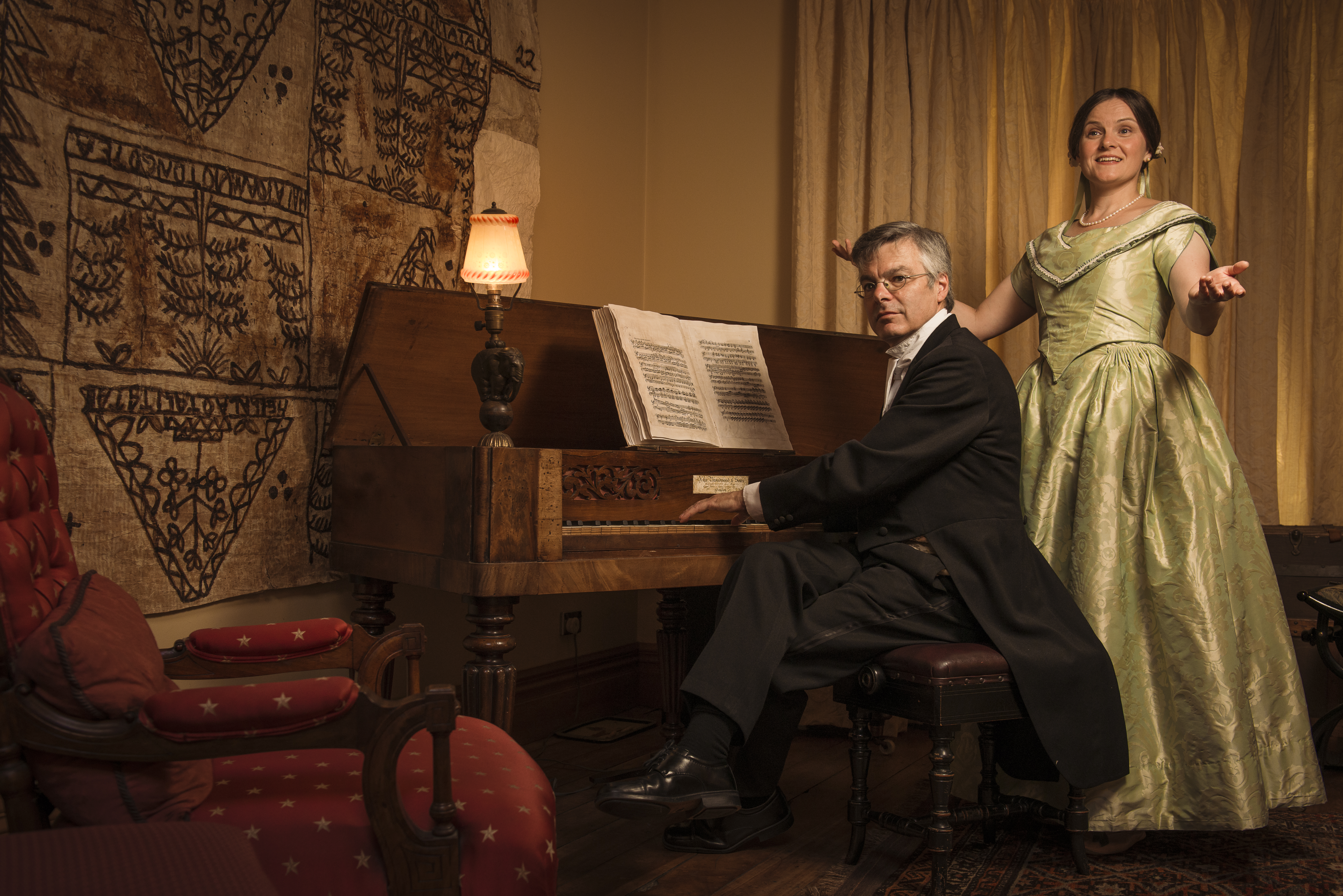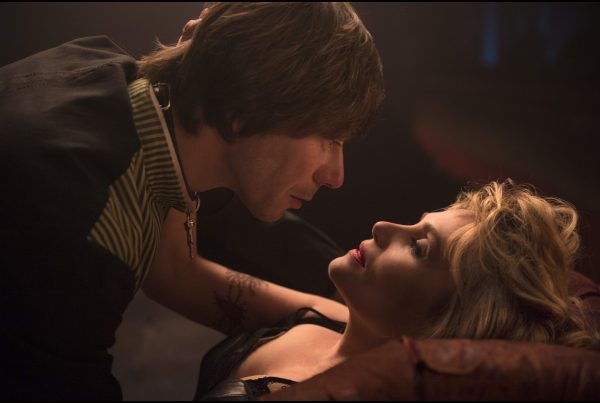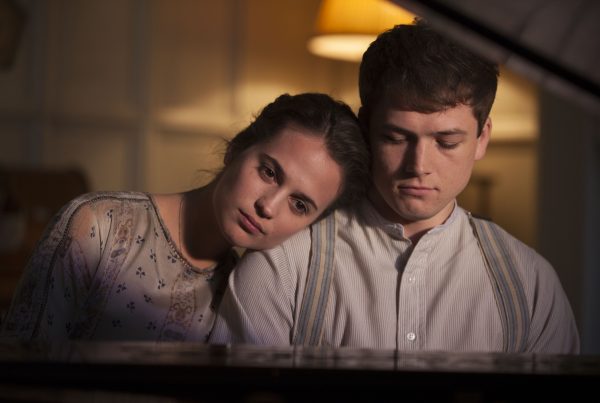
This is relevant because, when we meet in his house in Aro Valley’s Essex Street, he is working on a new show about Nelson, called Lines from the Nile, to be performed in his front room. His is a residence of many keyboards, each with its own character and back story. The virginal, a replica of the sort of thing the first Queen Elizabeth might have played, makes its sound when the strings are plucked by little devices made from, as it turns out, crow’s feathers. “If you know of anyone who shoots crows, let me know,” Mews says, as if this were a likely prospect. “Crows are good. You need large feathers.” He also has a harpsichord inscribed with the motto “Otium cum dignitate” (Leisure with dignity), which his aunt once told him was the Mews family motto. “It’s from Cicero, of course,” he adds, with a sharp but playful look that implies that, somehow, you’re being tested — but that the test is itself a great joke.
If the classical world seems sometimes shrouded in seriousness and gloom, there is no such malaise in the Mews household. Lines from the Nile is made up of music of a certain weight — most of it connected loosely to ideas of empire, and in particular the 1840 marriage of Queen Victoria (she who was, famously, not amused) — but Mews looks on the lighter side. “It’s meant to be serious,” he says of one particular piece, “but it’s pretty funny, really, the melodrama of it.” And indeed it is difficult not to laugh as he recites the lines — “trembling midst unnumbered griefs”, and so on — with an enthusiastic ‘badum badum badum’ sort of emphasis.
Pianos of one sort or another are never far away. Mews talks about the old Broadwood instruments, the kind that Beethoven played, and how their sound has a “romantic haze” — which, he adds, fixing you with another one of those half-serious, half-laughing looks, “is a technical term”. Also in his collection is a piano that belonged to the Robert Tait who founded Taitville, a now largely forgotten name for the area around Aro Valley’s Norway Street. A square, tastefully decorated instrument, rather like the eponymous star of The Piano, it bears the most delicate and evocative traces of the past: the names of Tait’s children, signed in curling script on the sides of the keys, with a date, 11 May 1887.
You’d think that such a thing might be a local treasure, but one of its previous possessors, Mews says lightly, “was going to rip the inside out and turn it into a cocktail cabinet”. That fate having been averted, the piano will be pressed into service for Lines from the Nile, whose title comes from a piece composed by Haydn about Nelson’s famous Egyptian victory over the French in 1798. It was commissioned by Nelson’s almost equally famous lover, Emma Hamilton, who had met him when he popped into Naples after the battle (“Emma apparently flung herself at him, and took three weeks to recover,” Mews says, in passing) and decided that this great man’s victory must be commemorated in music. And so Mews came to be playing that piece, and others, in his front room, in a kind of chamber music for the twenty-first century. It might not, in fact, have been chamber music, as the classical world normally uses the phrase. But it didn’t seem like he was going to take the definition too seriously.




